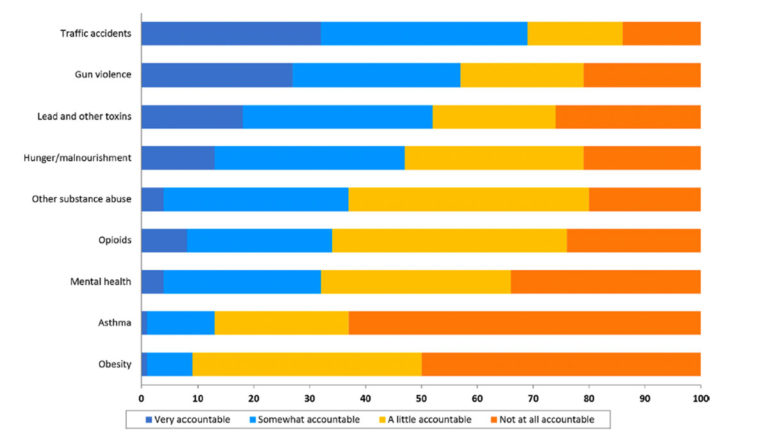Mayor X, MPH
Diversifying city health initiatives can provide widespread benefits to communities.

Read Time: 3 minutes
Published:
In November 2021, Boston elected a woman of color as mayor for the first time. Michelle Wu’s platform weaves together direct public health policy with broader measures addressing inequitable access to community resources. Some of these initiatives include removing barriers to public transportation, housing, and education. If passed, all of these policies will influence the health of Bostonians. However, they aren’t all advertised as public health policy.
Luisa Godinez Puig and team analyzed the perceptions of mayors across the United States on their public health priorities. The researchers interviewed mayors of 110 mid-sized and large cities on public health challenges and their perceptions on mayoral accountability for the public’s health.
The top three health challenges the mayors identified were 1) obesity, diabetes, and heart disease; 2) addiction; and 3) lack of access to health care. However, the mayors reported that their constituents see traffic accidents, gun violence, and environmental exposures (including lead and other toxins) as the responsibility of the mayor’s office. The image shows what health concerns mayors feel their constituents hold them the most accountable for. Blue indicates health challenges the public perceived to be the responsibility of the mayor’s office.
The authors offer up a number of explanations. Traditionally, health departments often function at a county level so many health interventions like needle exchanges and food support programs are not run through the mayoral offices of mid-sized municipalities. Additionally, reducing non-communicable disease like obesity and diabetes have never fallen within the normal responsibilities of a mayor. Even if mayors see these conditions as top health concerns, they are not typically incorporated into their policy agenda. The authors argue that it is necessary to shift accountability of top health concerns to all levels of local government.
The pandemic could help in this shift. It has become evident that government action and inaction at all levels directly influence health outcomes. A second iteration of this study found that the pandemic has brought new health concerns for mayors such as mental health and student learning loss.
Constituents have begun to encourage mayors to take action on a wider array of health concerns, not just the ones falling into traditional mayoral duties. Mayor Wu could prove that diversifying health initiatives can provide widespread benefits to communities.
Databyte via Godinez Puig L, Lusk K, Glick D, Einstein KL, Palmer M, Fox S, Wang ML. Perceptions of Public Health Priorities and Accountability Among US Mayors. Public Health Reports, 2021.



